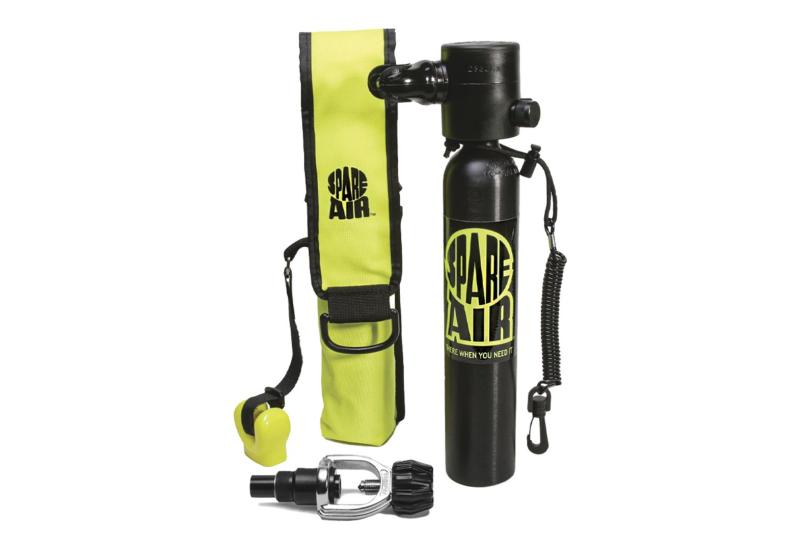Evaluating Scuba Warranties
Scuba equipment, like most products we buy, is sold with one or more warranties. A warranty is a promise that someone, usually the manufacturer or the dealer, will stand behind a product if it is defective. Some promises, however, are better than others.
Although warranties are an important feature of expensive equipment like scuba gear, few consumers consider the warranty when buying scuba gear, and fewer still ever read their warranty--at least until the equipment fails. By then, it might be too late to protect your rights.
Here's how to read and evaluate warranties before you make your purchase.
Express Warranties: The Manufacturer's Written Promise
The express warranty is the one in writing that comes from the manufacturer with your purchase of new equipment. In it, the manufacturer promises that the equipment is free from defects in workmanship and materials as of the time it was manufactured, and tells you what it will do if the equipment fails because of such a defect.
Express warranties are almost invariably labeled "limited," and they are, usually with respect to time. Some manufacturers will spell out the guaranteed life of a product or individual parts, like hoses.
The remedy if there is a defect will be limited to repair or replacement at the manufacturer's discretion and the manufacturer invariably disavows any liability for consequential damages, such as the cost of your ruined dive trip because the equipment failed. The warranty is limited to the original purchaser and often requires you to purchase the product from a manufacturer's authorized dealers.
Implied Warranty: What the Law Gives the Purchaser
Many consumers have never heard of implied warranties. They don't come from the manufacturer. Instead, most if not all states give you what is called an implied warranty of merchantability when you buy the product from a dealer. To be "merchantable," the product must be fit for the ordinary purposes for which it is used.
An implied warranty of fitness for a particular purpose also arises when the seller knows you are relying upon his expertise to select a product for a specific purpose. For example, you ask a dealer to recommend a dive watch that will withstand a certain pressure. If he recommends one, and the watch then leaks or otherwise fails at that pressure, you may have a claim for breach of this warranty. Finally, if the product is not fit for its ordinary purpose, state statutes provide the buyer with a variety of other remedies.
Note that in some states only the dealer who sells you the product is bound by the implied warranty of merchantability. Other states also bind the manufacturer with this warranty. A manufacturer may "disclaim" or "limit" implied warranties where applicable federal and state law allow this. The disclaimers or limitations are usually written into the manufacturer's express warranty, so be sure to look for them. {mospagebreak}
Buyer Beware: Using Due Diligence
While these warranties may be useful if your equipment fails, you can also protect yourself by using common sense before buying. Be sure to ask:
-
Which competitive model gives the longest warranty? Does the warranty have a longer life on some parts, and a shorter life on others?
-
Is the seller of the product an authorized dealer? If not, does this void the express warranty? If it does, is the seller giving you an equivalent express warranty? This issue may arise when you buy from a mail-order house.
-
If someone other than the manufacturer or authorized dealer services your equipment, does this void any warranties? Does the express warranty require that you service the product regularly?
-
If you make a warranty claim, what are you entitled to--refund, repair or replacement? Does the warranty tell you how many times the manufacturer may attempt to repair the defect before it must replace the equipment (a few warranties do, most don't)? If a manufacturer agrees to replace a defective product, will it prorate the replacement (e.g., replace your $400 BC with a new one but make you pay $100 as a depreciation expense)? How long is the warranty on the replacement (is it a new term or just the amount of time left on the original product)? What is the procedure for getting warranty repairs? Who does the repairs?
-
Can you inspect or try out the product before you buy it? You don't want to open the box at home and then find out it's defective. Under the Uniform Commercial Code adopted by nearly every state, you give up your implied warranty rights as to defects you could have spotted by reasonable inspection. Pre-purchase inspection also eliminates any argument between you and the dealer or manufacturer as to how or when the defect arose.
-
How reputable, knowledgeable and experienced is the dealer? Does he acknowledge his implied warranty obligations versus telling you that your sole remedy for defects is with the manufacturer?
The Bottom Line: Know Before You Buy
Knowing your legal rights is a wondrous thing. But your best warranty protection lies in evaluating warranties before you buy, so you will know what to expect if your equipment later fails. This includes asking the manufacturer or dealer any unanswered questions before you part with your money. Exercising your legal rights will require you to prove the failure is due to a defect in the equipment's manufacture or design. This is frequently a difficult burden. Doing your homework before you buy may spare you the hassle.
Regulator Warranties: Money In the Bank
You know that regular maintenance is important to keeping your regulator in top condition. But unless you read the warranty card, you might not know that having it serviced annually is often required to keep the warranty valid.
Warranties differ, of course, so read the fine print. You may even get a pleasant surprise. Some regulator warranties will provide, at no charge to you, the parts that should be replaced annually. You"ll still pay the labor charge--around $20 per stage--but by taking advantage of free parts, the reduced cost of annual servicing is a sound investment that can extend your regulator's working life indefinitely.
Scuba equipment, like most products we buy, is sold with one or more warranties. A warranty is a promise that someone, usually the manufacturer or the dealer, will stand behind a product if it is defective. Some promises, however, are better than others.
Although warranties are an important feature of expensive equipment like scuba gear, few consumers consider the warranty when buying scuba gear, and fewer still ever read their warranty--at least until the equipment fails. By then, it might be too late to protect your rights.
Here's how to read and evaluate warranties before you make your purchase.
Express Warranties: The Manufacturer's Written Promise
The express warranty is the one in writing that comes from the manufacturer with your purchase of new equipment. In it, the manufacturer promises that the equipment is free from defects in workmanship and materials as of the time it was manufactured, and tells you what it will do if the equipment fails because of such a defect.
Express warranties are almost invariably labeled "limited," and they are, usually with respect to time. Some manufacturers will spell out the guaranteed life of a product or individual parts, like hoses.
The remedy if there is a defect will be limited to repair or replacement at the manufacturer's discretion and the manufacturer invariably disavows any liability for consequential damages, such as the cost of your ruined dive trip because the equipment failed. The warranty is limited to the original purchaser and often requires you to purchase the product from a manufacturer's authorized dealers.
Implied Warranty: What the Law Gives the Purchaser
Many consumers have never heard of implied warranties. They don't come from the manufacturer. Instead, most if not all states give you what is called an implied warranty of merchantability when you buy the product from a dealer. To be "merchantable," the product must be fit for the ordinary purposes for which it is used.
An implied warranty of fitness for a particular purpose also arises when the seller knows you are relying upon his expertise to select a product for a specific purpose. For example, you ask a dealer to recommend a dive watch that will withstand a certain pressure. If he recommends one, and the watch then leaks or otherwise fails at that pressure, you may have a claim for breach of this warranty. Finally, if the product is not fit for its ordinary purpose, state statutes provide the buyer with a variety of other remedies.
Note that in some states only the dealer who sells you the product is bound by the implied warranty of merchantability. Other states also bind the manufacturer with this warranty. A manufacturer may "disclaim" or "limit" implied warranties where applicable federal and state law allow this. The disclaimers or limitations are usually written into the manufacturer's express warranty, so be sure to look for them. {mospagebreak}
Buyer Beware: Using Due Diligence
While these warranties may be useful if your equipment fails, you can also protect yourself by using common sense before buying. Be sure to ask:
Which competitive model gives the longest warranty? Does the warranty have a longer life on some parts, and a shorter life on others?
Is the seller of the product an authorized dealer? If not, does this void the express warranty? If it does, is the seller giving you an equivalent express warranty? This issue may arise when you buy from a mail-order house.
If someone other than the manufacturer or authorized dealer services your equipment, does this void any warranties? Does the express warranty require that you service the product regularly?
If you make a warranty claim, what are you entitled to--refund, repair or replacement? Does the warranty tell you how many times the manufacturer may attempt to repair the defect before it must replace the equipment (a few warranties do, most don't)? If a manufacturer agrees to replace a defective product, will it prorate the replacement (e.g., replace your $400 BC with a new one but make you pay $100 as a depreciation expense)? How long is the warranty on the replacement (is it a new term or just the amount of time left on the original product)? What is the procedure for getting warranty repairs? Who does the repairs?
Can you inspect or try out the product before you buy it? You don't want to open the box at home and then find out it's defective. Under the Uniform Commercial Code adopted by nearly every state, you give up your implied warranty rights as to defects you could have spotted by reasonable inspection. Pre-purchase inspection also eliminates any argument between you and the dealer or manufacturer as to how or when the defect arose.
How reputable, knowledgeable and experienced is the dealer? Does he acknowledge his implied warranty obligations versus telling you that your sole remedy for defects is with the manufacturer?
The Bottom Line: Know Before You Buy
Knowing your legal rights is a wondrous thing. But your best warranty protection lies in evaluating warranties before you buy, so you will know what to expect if your equipment later fails. This includes asking the manufacturer or dealer any unanswered questions before you part with your money. Exercising your legal rights will require you to prove the failure is due to a defect in the equipment's manufacture or design. This is frequently a difficult burden. Doing your homework before you buy may spare you the hassle.
Regulator Warranties: Money In the Bank
You know that regular maintenance is important to keeping your regulator in top condition. But unless you read the warranty card, you might not know that having it serviced annually is often required to keep the warranty valid.
Warranties differ, of course, so read the fine print. You may even get a pleasant surprise. Some regulator warranties will provide, at no charge to you, the parts that should be replaced annually. You"ll still pay the labor charge--around $20 per stage--but by taking advantage of free parts, the reduced cost of annual servicing is a sound investment that can extend your regulator's working life indefinitely.










